Cockpit
The cockpit has an instrument panel replicating the original panel, a seat shaker, instructor controlled CB ‘pop-out’ activation and simulates the oxygen system with realistic overpressure and mask breathing detection.
The PC-7 Flight Training Device (FTD) and Procedure Training Device (PTD) serves to develop and practise aircraft handling skills and to achieve perfection in flight
Has significant cost saving benefits
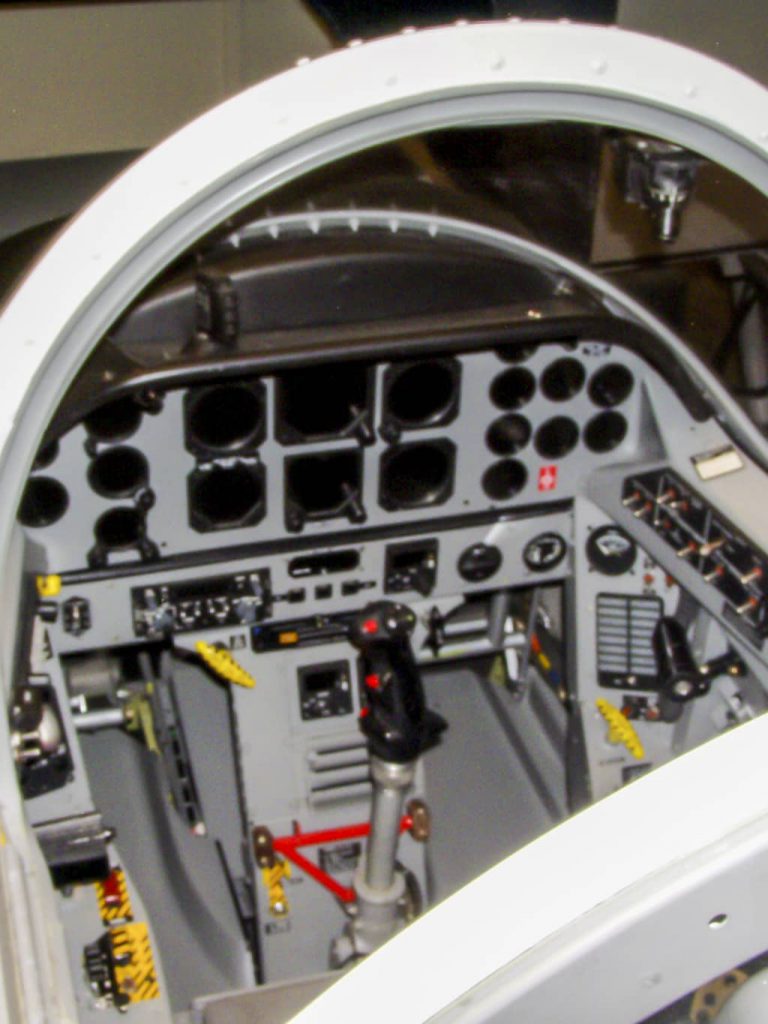
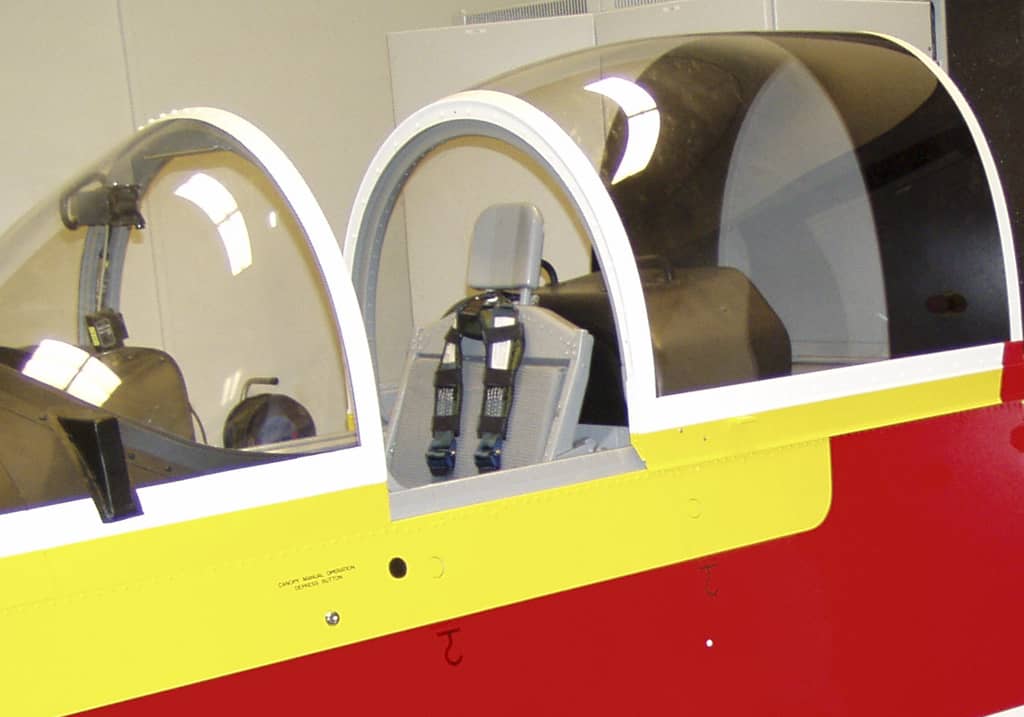
The cockpit has an instrument panel replicating the original panel, a seat shaker, instructor controlled CB ‘pop-out’ activation and simulates the oxygen system with realistic overpressure and mask breathing detection.
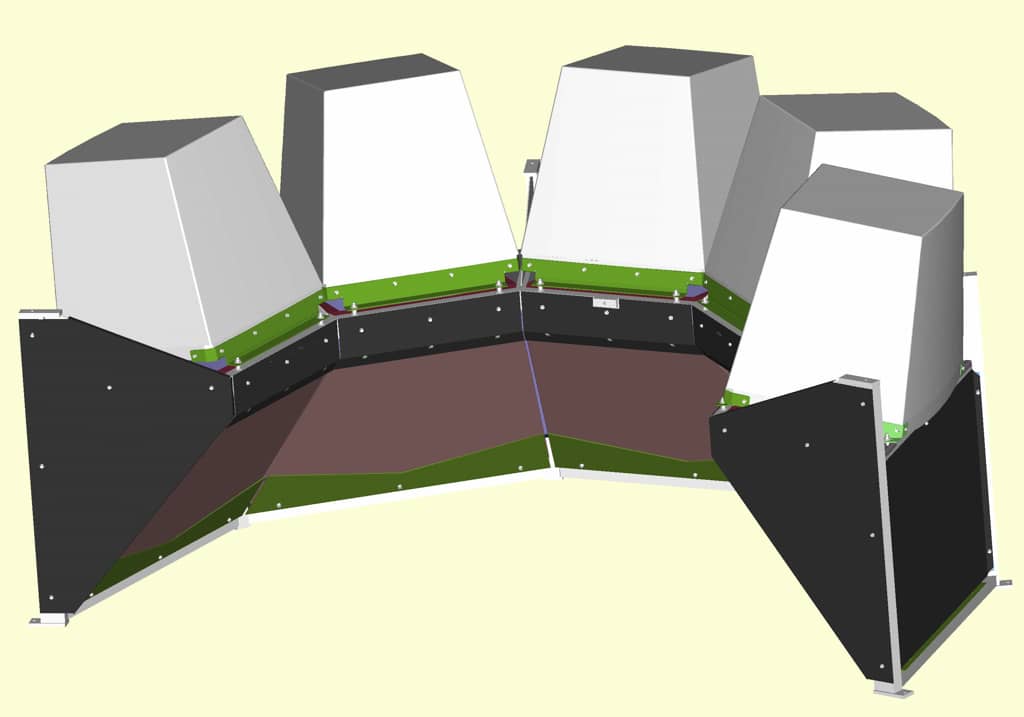
The visual system is a fully enclosed flight deck with 225° x 30° Field of View, five-channel collimated display system with CRT monitors.
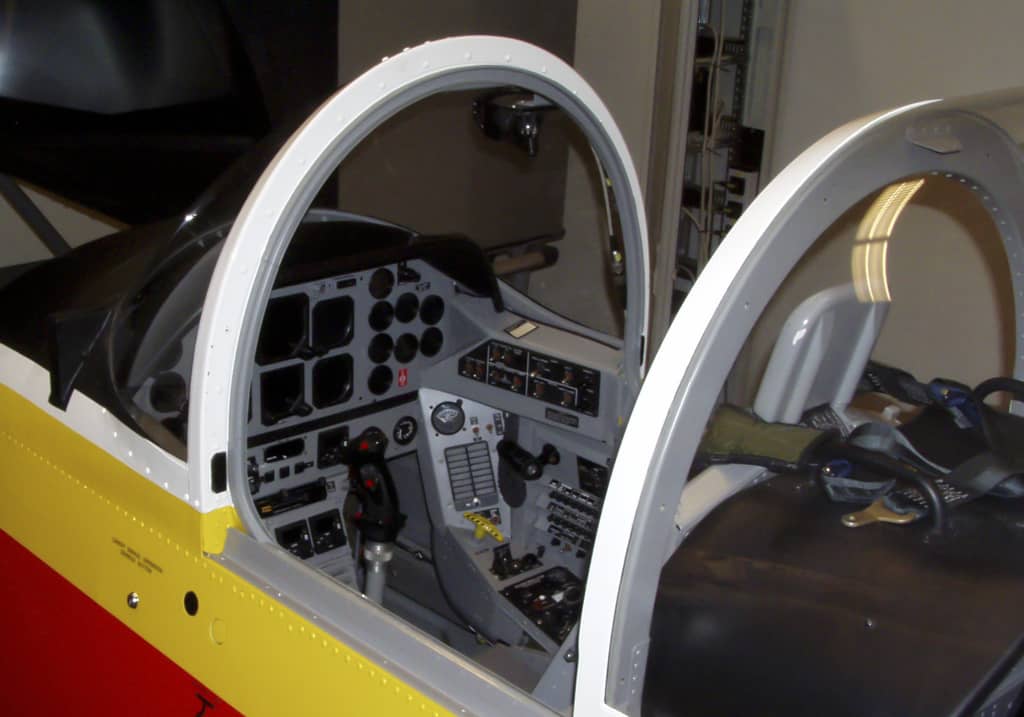
Flight controls have electrical three-axis control loading system for aileron, elevator and rudder, electrical control loading system for secondary controls like power lever, gear and flap lever and an electro-hydraulic brake for generating hydraulic brake failures.
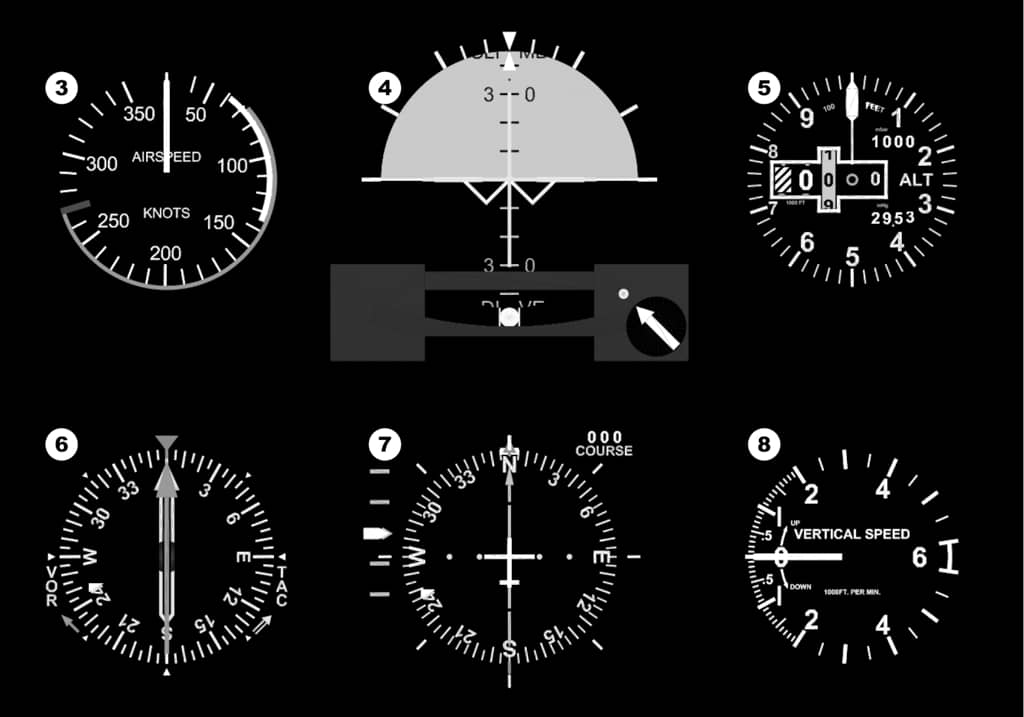
The aircraft cockpit section is equipped with software-generated instruments, displayed on TFT flat panels. The instructor can select different instrument configurations to simulate different types of aircraft. It has an additional G-meter and an aircraft system master warning and caution system.
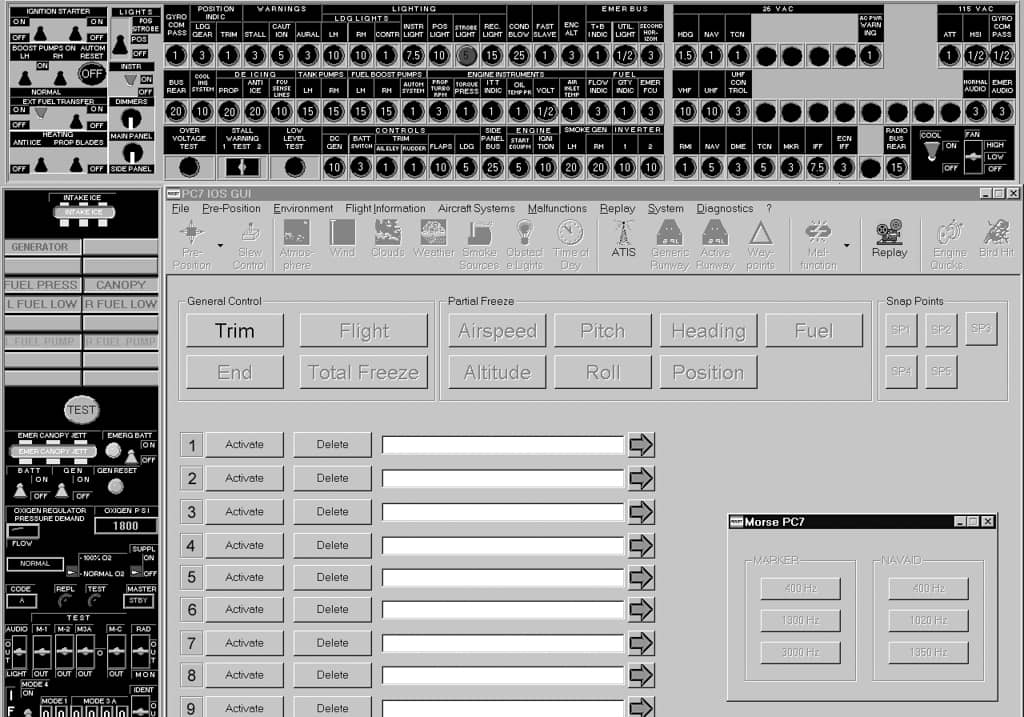
Sound and intercom system has an advanced stereo sound system with realistic turboprop sound. ATIS automatically generated from IOS. Additionally there are environmental sound effects like thunder, rain, hail, and crash effects.
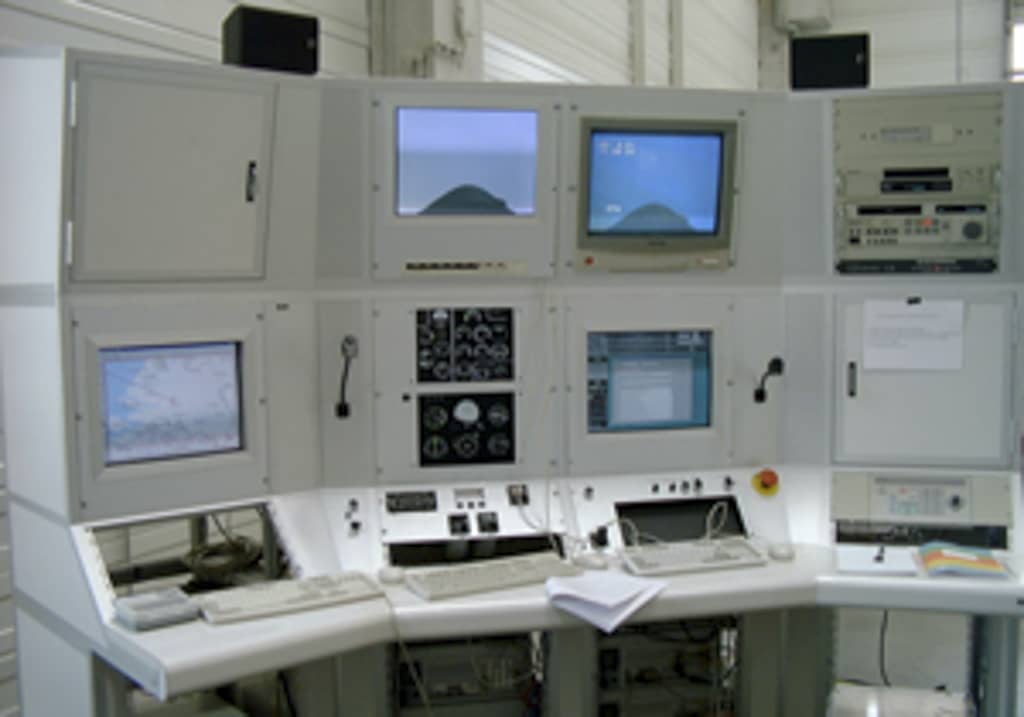
The IOS has crew coordination capability to operate secondary controls, radios and avionics from simulated rear pilot seat and an advanced record/replay facility including ‘live’ actuation of controls in the cockpit.
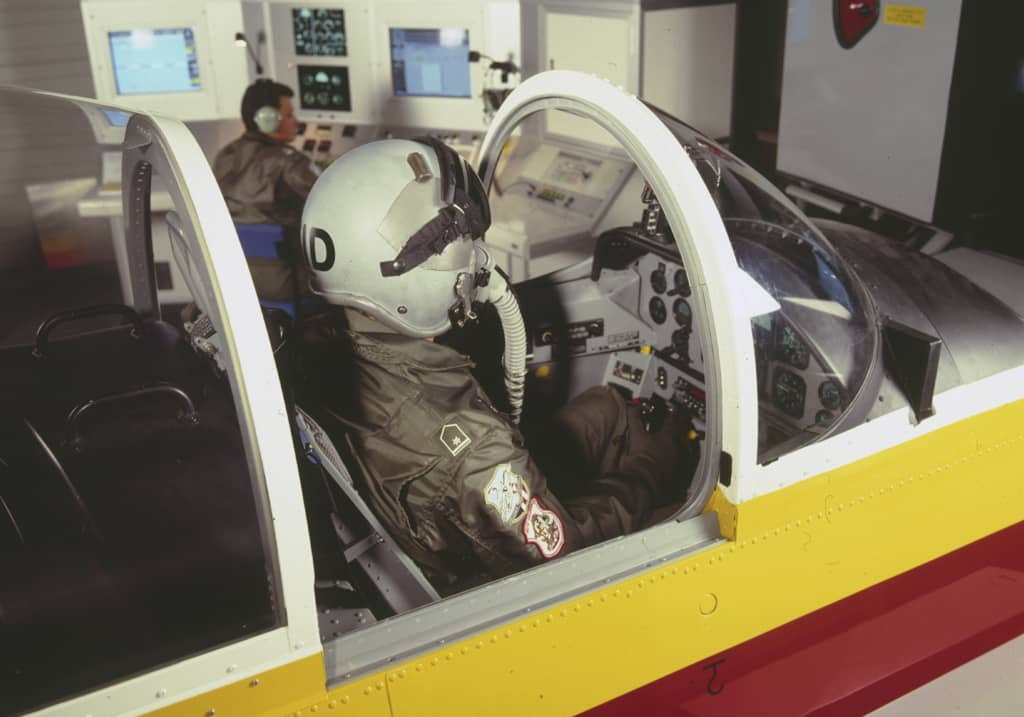
The Pilatus PC-7 turboprop trainer was built for the Royal Netherland Air Force (RNLAF), 131 (EMVO) Squadron in Woensdrecht. This FTD is in service since 2000, and many pilots have experienced the benefit of this training device. The FTD has made a significant contribution in pilots getting their wings.
AMST-Systemtechnik GmbH
Lamprechtshausener Strasse 63
5282 Ranshofen • Austria
Phone +43 7722 892 0
Fax +43 7722 892 399
E-Mail office@amst.at
© 2021 AMST